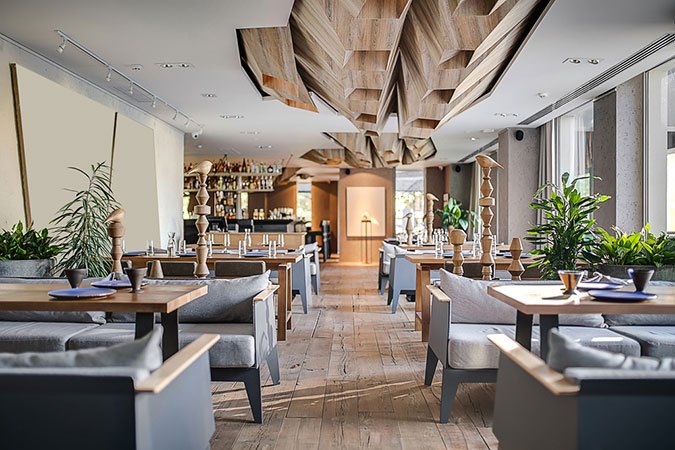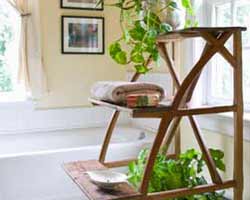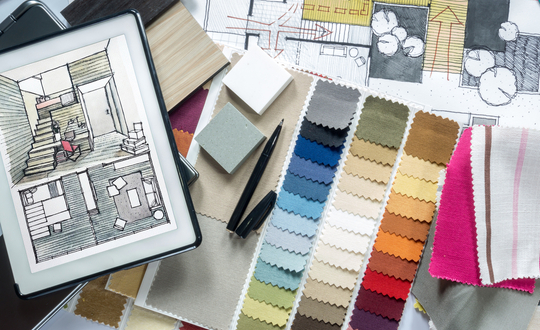When it comes to professional interior design, the type of work you practice will generally fall into one of two categories- residential or commercial. Many designers practice both areas of professional design, completing projects for homeowners, small businesses, and even larger commercial clients alike. However, the distinction is still an important one to understand, especially as a beginner.
Residential Interior Design
In residential design, you will be planning and designing spaces within a client’s home or apartment. Most often, if you decide to specialize in home design, you will take it a step further and additionally specialize in a specific aspect of residential design. Maybe you’d be a kitchen redesign expert, a home office organizer, or a custom furniture designer.
Your projects will range from totally new construction- people who just built a home and want you to style its interior from start to finish- to projects in which you’re helping clients highlight, rearrange and repurpose some furniture and décor they already own in a room redesign project. You might help suggest paint colors, furniture, or new décor to clients to purchase in supplement to what they already own as well, all in an effort to enhance their home space.
On a higher level, you might make much more substantial redesign recommendations when it comes to home style. Maybe you feel a home could benefit from a more open, airy layout- you might recommend the addition or elimination of entire walls. Maybe you’ll suggest the installation of a skylight or new ceiling design to add an interesting element, maybe new flooring and floor design, trim work, an exciting light installation- the list goes on.
Read a Comprehensive Interior Design Career Guide.
Commercial Interior Design
If you decide to specialize in commercial interior design, you will be planning and designing business places- offices, small local businesses, restaurants, stores, etc. This design niche offers a lot of opportunity, and can be an extremely lucrative one.
Similar to residential designers, commercial designers also often choose a specialization. This is often a product of experience. After designing for several years completing a number of different projects for different clients, you might find you prefer, or excel, at restaurant redesigns for example. Having a niche like that is a great way to market yourself and define a personal brand that sets you apart.
Whatever you’re preference, it’s important to determine the interior design education requirements that best correspond with your specialization of choice.








